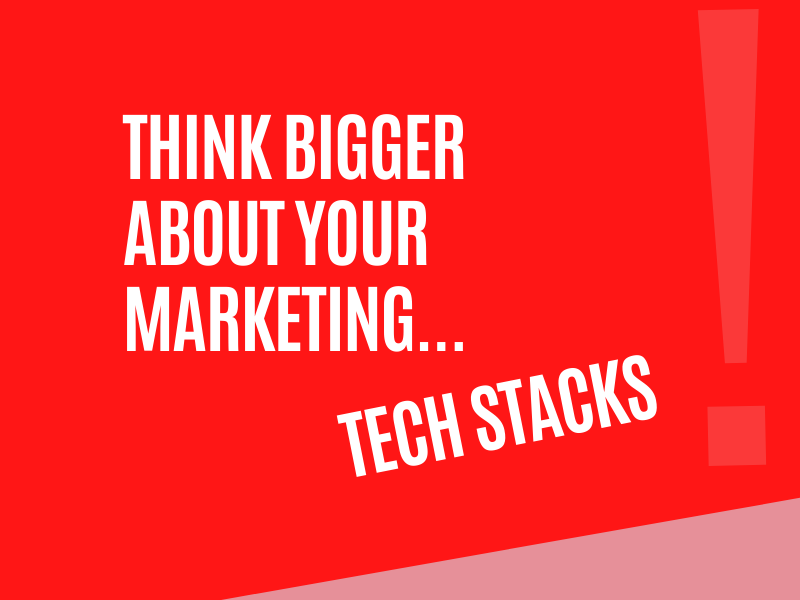On This Page
- Who is typically in charge of social media management?
- Why is Online Marketing Important?
- Benefits Of Social Media Marketing Software
- From where did the concept of the ‘Tech Stack’ develop?
- What you need to know about data in marketing
- Why marketing should drive your company’s digital evolution
- Marketing Technology Will Always Have Its Place
Who is typically in charge of social media management?
Beyond the business owners who DIY it, the following people and firms typically manage social media for personal brands and businesses. Social media managers – if you hire a dedicated social media manager to run your social media accounts, glassdoor estimates that you will pay them an average salary of $50k per year. Freelance social media consultants – according to Hubspot, typical freelance social media consulting rates can range from $15 to $250 per hour. The rate will vary based on the consultant’s experience level and your social media management needs.
Now think about how much productivity the social media manager can generate with the use of distinct yet interdependent software tools. It’s these tools and the design of their interdependency by the social media manager that we want to focus on, in this example.

Why is Online Marketing Important?
The impact of digital marketing has never been more important for brand development – but this can be a strange and challenging world for businesses that are just beginning to develop their online presence. Here are several ways that digital marketing and your brand are closely linked…and why that matters so much in today’s online advertising world.
Technology is changing marketing at such a speed that existing strategies can become obsolete in the blink of an eye. That’s why it is important to keep your skills current. Continuous training can expand your knowledge base and keep you conversant with emerging trends in the marketing field. Sign up for certified courses, workshops, online training, or webinars regularly. Keep an eye on the publications and the influencers you are following for any training or webinar they may provide. Apart from improving your knowledge base, these training courses serve as excellent opportunities to connect with co-marketers and industry experts. You can even monetize your knowledge and skills by educating upcoming marketers who might be facing tough situations to keep up with the ever-evolving market.
Benefits Of Social Media Marketing Software
Social media management software should help you get better results. Whether you aim to add leads, followers, sales, or a combination of the three, these platforms should enable and augment your strategy. They can do so through the three core benefits outlined below.
Marketing automation software helps marketing teams automate workflows related to lead generation, social media posting, and email marketing activities. Aside from the obvious time-saving benefits that come with this type of tool, marketing automation software also helps to create personalized messaging across different campaigns without the need for manual effort. These campaigns can be set up to run around the clock, even if you’re not there to manage them.
From where did the concept of the ‘Tech Stack’ develop?
As the digital ecosystem continues to expand and evolve, saas technology has become a mission-critical component for effective marketing operations. Marketing and advertising technology falls into numerous complex and overlapping categories, with literally thousands of partners competing for your marketing dollars. Whether you’re building your marketing tech stack from a mobile-first or web-first perspective, it can be daunting to know where to start as well as when and how to expand. And while adding or changing marketing technology requires significant investment in terms of vetting, training, development, and other resources, adaptability is key to success.
Here’s a great way to get acclimated to the Martech concept of Tech Stacks…
Do a Google search for Stackies… it’s an awards contest that invites marketers to send in a single slide illustrating their marketing stack — the collection of martech tools they use and the way they conceptualize them together as a whole. Although the award team awards trophies for a few winning entries for the ideas they share, any stack that works for the team who uses it is a winner where it really matters. But through this contest, the martech community at large wins, by learning from the many examples of their peers so generously share. A big, big thank you goes out to everyone who contributed.
What you need to know about data in marketing
Digital marketers use Buzzsumo to reveal what content works and what content doesn’t perform across social media. You can use Buzzsumo to get fresh content ideas and spend your time creating content that you know is going to perform well once it’s released into the wild. The Buzzsumo platform has four key components:
discovery tools help you explore high-performing content so you can get more likes, links, and shares. Research tools analyze billions of data points to sharpen your marketing strategy. Influencer tools help you identify influential people to power-up your brand or campaign.
Customer loyalty is one of the biggest challenges for marketers. It helps you to build a better brand image and reputation, and gain repeat business. As you know, you cannot improve what you cannot measure. Monitor and track your customer loyalty data. It will help you to capture customer value and provide better marketing services. You can use the following influencer marketing tips to succeed in 2019.
Why marketing should drive your company’s digital evolution
The last thing you want to do after you onboard a new customer is to remove them from your marketing automation program. However, it’s a common mistake that many b2b enterprise tech organizations make. What you want is to design separate nurturing programs for existing customers. The number of touches might be more infrequent, and the messaging will be much more consultative. Your existing customer nurturing program should include things like webinars, customer success workshops, and live events in their area. By seeing the topics of webinars customers attend, for example, you’ll gain some insight into what their ongoing needs are and if there are any additional features or services they might be interested in purchasing.
Many marketers find themselves overwhelmed by what they should and shouldn’t be doing with technology, especially marketing automation solutions. And even more, find themselves with a fast-growing number of piecemeal tools that can’t integrate with each other and don’t actually do what they’re supposed to. According to a survey by b2b marketing research firm ascend2, the top three reasons organizations haven’t started with marketing automation include:
55. 6% lack of expertise or know-how
33. 5% lack of marketing automation strategy
Supporting campaign objectives through technology is what we do. We understand how technology impacts a campaign, and we can help you pick the right tactics and strategies based on your goals. From the small things that help optimize results—such as page structure, form placement, and other UX concepts—to larger considerations about platforms, technologies, and how to ensure tight integration with your existing systems and processes.
Marketing Technology Will Always Have Its Place
Brands that we know, the technology that we use, causes that we relate to, and things we binge-watch on the web, not only this but also the places to which we travel and the social causes we are receptive to.
“The Printing Press… Benjamin Franklin’s first tool in his marketing stack. – Tony “Ty” Yeager”
Don’t think your own technology stack is a replacement for your marketing ecosystem. It’s a self-contained ecosystem that delivers a faster time to market and more agility to react and evolve in real-time.
While you might think that more technology in place means more efficiency for your business, each tool must serve a distinct purpose tied to your desired marketing outcomes.
A well-crafted marketing technology stack increases marketing efficiency, decreases lead to sales time, and ultimately increases overall revenue and customer satisfaction. My approach to marketing technology starts with defining the marketing tasks you’re already doing, that are driving value and that can be automated, saving you time and money. Whether it’s implementing marketing automation solutions to improve lead nurturing or email automation to provide the right content at the right time.


Comments are closed